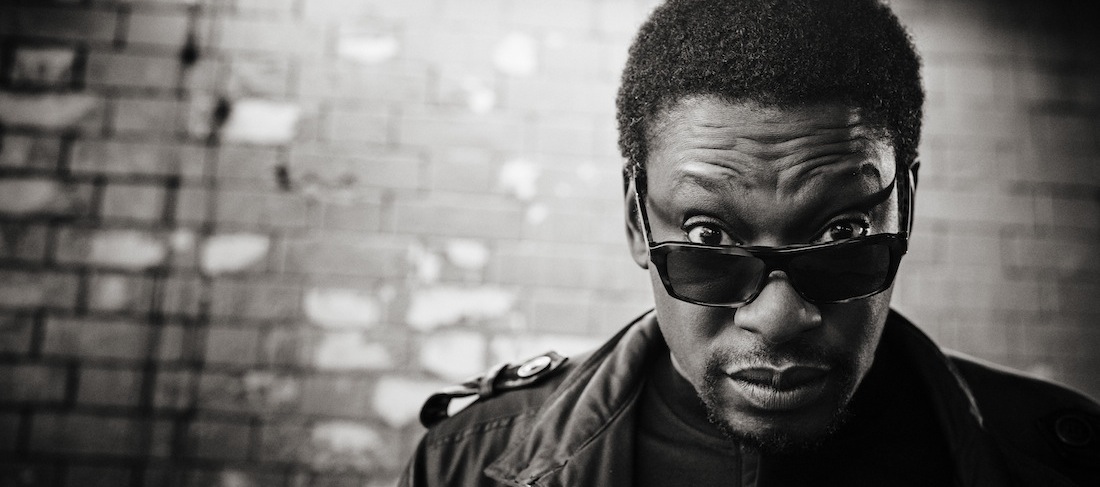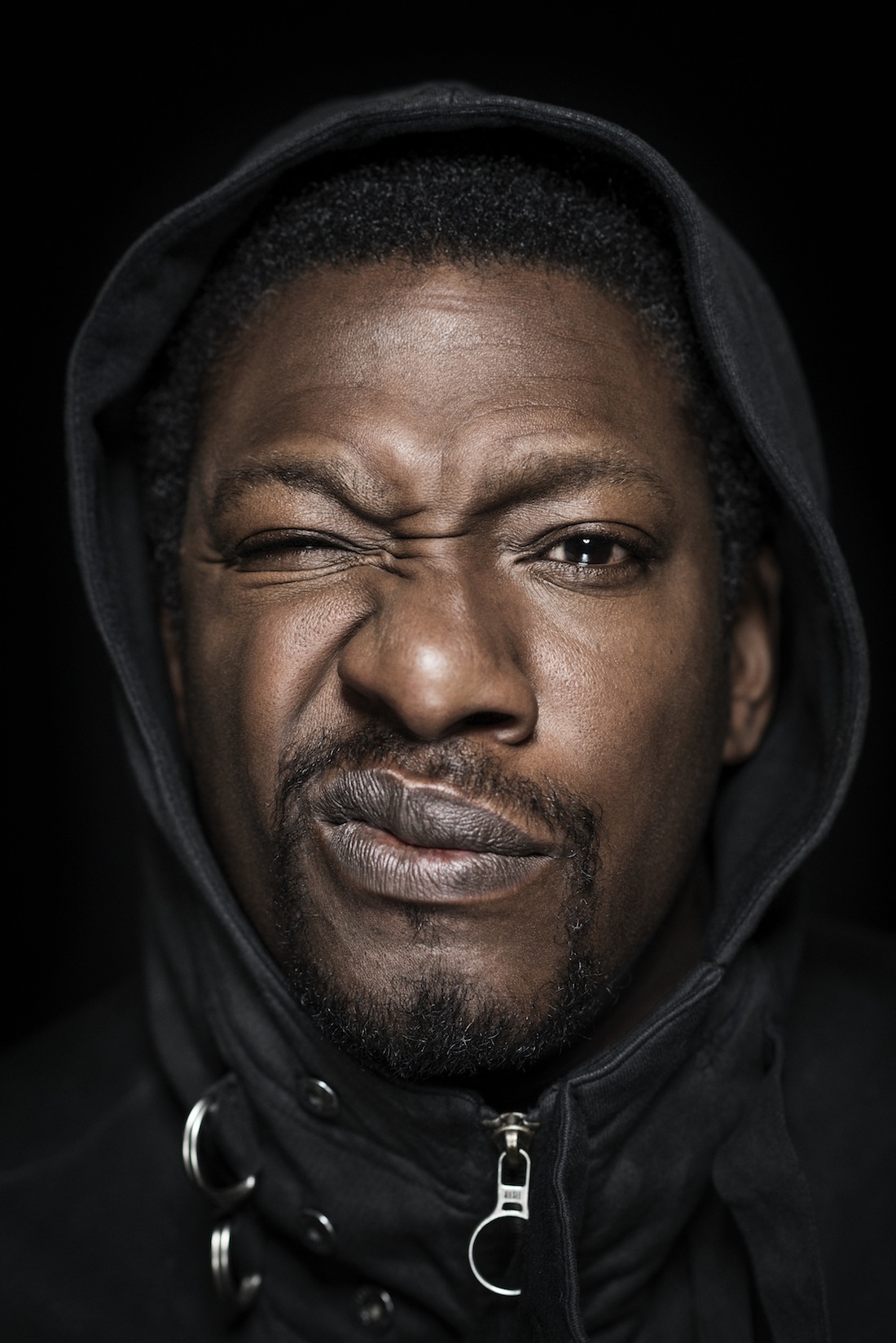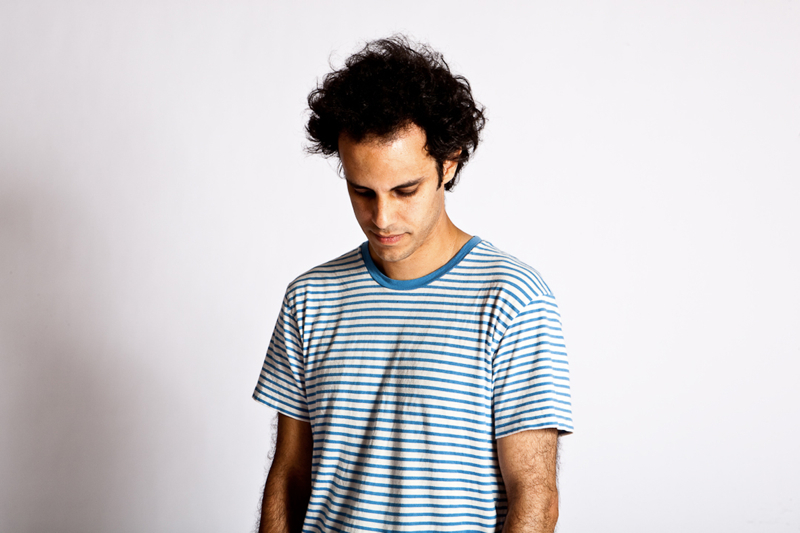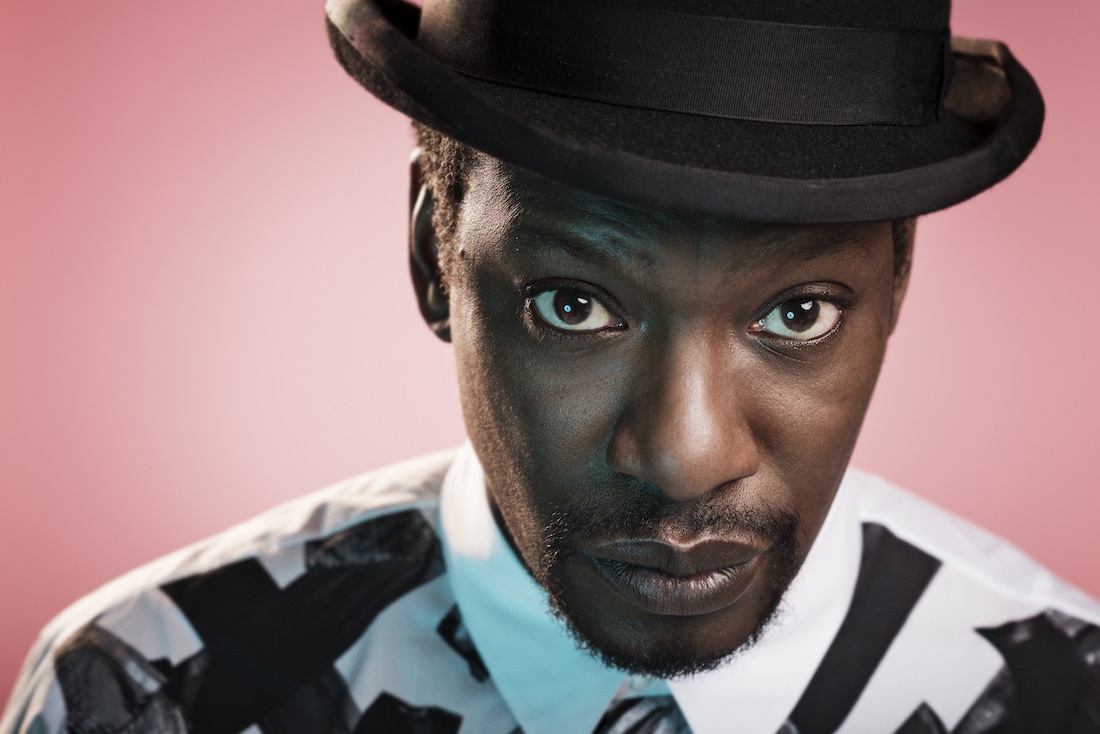Q&A: Roots Manuva
With a new album on Big Dada, the British MC talks production, politics, and why he's the black Mark Rothko.

Q&A: Roots Manuva
With a new album on Big Dada, the British MC talks production, politics, and why he's the black Mark Rothko.

There are few Brit MCs that can hold a candle to Rodney Smith. Since his 1999 debut, Brand New Second Hand, the London rapper better known as Roots Manuva has commanded the mike with a presence and authority that makes most of the competition look like wallflowers.
Rather than imitating the American pioneers of the form, he’s favored a uniquely black British delivery over six original albums (not to mention a wealth of special releases and dub records) rich in wordplay and imagery, mixing the surreal with the everyday. His beats, too, have always been more stimulating than your average dusty hip-hop break, nodding to dancehall, experimental electronics, classical and techno, whether self-produced or made with a handpicked crew of crack beatsmiths.
His new album, Bleeds—like the rest, released on Big Dada—sees Smith in especially animated Roots Manuva form, with production from such varied beat makers and studio dons as Four Tet, On-U Sound’s Adrian Sherwood and Switch (ex-Major Lazer). Slickly made at first listen, but thrumming with lyrical depths, it’s a new chapter for the U.K.’s most original rapper. XLR8R got in touch with Rodney to find out where his mind is at.
There’s a cinematic feel to Bleeds. Did you have a vision of how the whole record was going to sound?
Not really. I made over 100 tracks and I didn’t know my ass from my elbow. I had to make a choice from there whether I was gonna use any of the hundred. I make music as though I’m gonna bankrupt myself. Nothing is finished—I just reach a point where I stop. But this is the most succinct body of music I’ve ever done, because there’s less of it but there’s more detail. I’m in my buddy’s Land Rover listening to it, and it makes sense. It’s Land Rover music! I need to buy myself a Land Rover so I can start making more music like this.

Are you making music all the time?
Of course! On your iPhone you’ve got apps, you’ve got little synthesizers—it’s constant, it’s a pleasure. Logic…using my own desk, I’ve got a Mackie Onyx desk that I distort to fuck, I use a lot of compression. And then I go to uncle Adrian’s house; he likes what I do. He adds his little sprinkles to it. Adrian Sherwood made this record come to a decent conclusion. For the album it’s been a long process; some things just started out as me rapping on loops and then giving it to different musicians to add parts to, but then when it came down to actually finalizing things it was Adrian who finalized the mixes and put tweaks on certain tracks. If it was left to me, I don’t know if I would be speaking to you about an album anymore. He put in so much effort to enable me to be an artist, and reminded me what an artist is.
I’ve got so much unreleased music and it’s not fair that it doesn’t get to the fans. The one thing I don’t want to do ever in life is annoy my fans. People that have gone the extra mile and bought those records, bought the tickets to the show…those people are really important to me. I want to give them value for money. It’s not just about money though. It’s about energy. We’re all giving each other energy.
What was it like working with Four Tet? What did you think of the beat for “Facety 2:11” when you first heard it?
“Yeah, man, it’s monster! He’s a great guy, a great DJ. He sent me quite a few bits and pieces that I loved, but “Facety” was the one that really struck a chord. It was the first thing that I felt confident to come back with.

The A&R team came and got behind me and were pushing me in all different angles, and it was really worth it. They never stopped believing from the start. I ain’t been committed to no other label on earth other than Big Dada—they stuck their neck out for me where a lot of labels would have run off years ago. It’s coming up to nearly 18 years now. The relationship just keeps going from strength to strength. It’s the one constant in my life. Not my love life, not my relationship with drugs, with alcohol—music is the one constant, and the record labels that I work with.
“I Know Your Face” is a storytelling piece and seems to be about a person going through an out-of-body experience after a car crash. What inspired that?
“It’s about nightmares. Reoccurring nightmares. The demon that is you. When you meet a demon that actually looks like you. Pretty scary shit.
Do you think there should be more storytelling in hip-hop?
I like Eminem but then I like Benjamin Zephaniah; that’s one of the greatest storytellers in Britain. Linton Kwesi Johnson, he spoke about the migrant impact in a way nobody else did. Kate Tempest is up there. It’s time to celebrate women producers, studio owners, the women managers. It’s a good time.
On “Hard Bastards,” you talk about how people are kept down by the U.K. government, by things like “cheap food and cheap booze.” Do you think that’s deliberate?
I don’t know if it’s deliberate. There’s a lot of monsters around but they don’t just have sharp teeth. They’re very sublime; they operate on some extremely devious levels.
Do you think the rise of people like Labour leader Jeremy Corbyn is a positive sign?
Corbyn’s got a wicked angle that a lot of people aren’t really messing around with. They try to take the piss out of him, but it’s coming from his heart. I ain’t no Labour man—you must know that from day. It ain’t about political alignment. The system is fucked and we want to change that. Change ain’t gonna come from no new political party; it’s gonna come from educating our next generation in a way where they don’t need a government, or banking systems, neither. It’s based on nothing—how can you borrow something for £1 and end up paying it back a thousand times more? It doesn’t make any sense.
“Go and flirt with a pretty cashier down at Rough Trade, boys and girls; put some humanness back into your musical purchases.”
What do you think of hip-hop today?
I think it’s wonderful. Grime is really good, a lot of the southern trap stuff…a load of it’s really creative. You’ve got three generations of every scene, from hardcore, to traditional hip-hop, to jazz, to house, to go-go. Nothing ever dies; it’s all just generations. You go and see someone like Neneh Cherry play, you’re gonna see Neneh Cherry, then you’re gonna see Neneh Cherry’s daughter, then her granddaughter, rapping and singing. It’s like, “Fuck, I grew up with these people and they keep going from strength to strength.” From Don Cherry to Neneh Cherry these things are forever. It’s beyond just being able to like one music or one genre. There’s never been a better time to dig your toe into the vast ocean of music that’s out there. You will find something. It’s harder than ever to focus because of Spotify—but people need to go out there, go to a shop and see things you like. Go and touch something, and go and smell somebody. Go and flirt with a pretty cashier down at Rough Trade, boys and girls; put some humanness back into your musical purchases.

Who else are you listening to now?
I like a lot of the new garage stuff like Gorgon City, or new soul, people like Jungle. I’ve heard some tracks from Hot Chip, Jme, Giggs, there’s so much stuff. The album I’ve got on repeat is Lana Del Rey, though. She’s really got that sound locked, she is a bad ass, amazing, out of this world what she is doing with the microphone. I can’t stop listening to that. And I listen to it on vinyl… it does mean I play it at 45 sometimes, and it sounds great too!
You’ve described yourself as a black British musical Mark Rothko. What do you mean by that?
Rothko was always frustrated with the prices of things ,and he just wanted to communicate some emotions. That’s all I want to do—communicate some emotions. Hopefully you can see it without me explaining it too much. It’s taken seven records to get to this point, and in seven records’ time I’m going to get to another point. Because I’m never going to stop making records.
All Roots Manuva photos: Shamil Tanna

